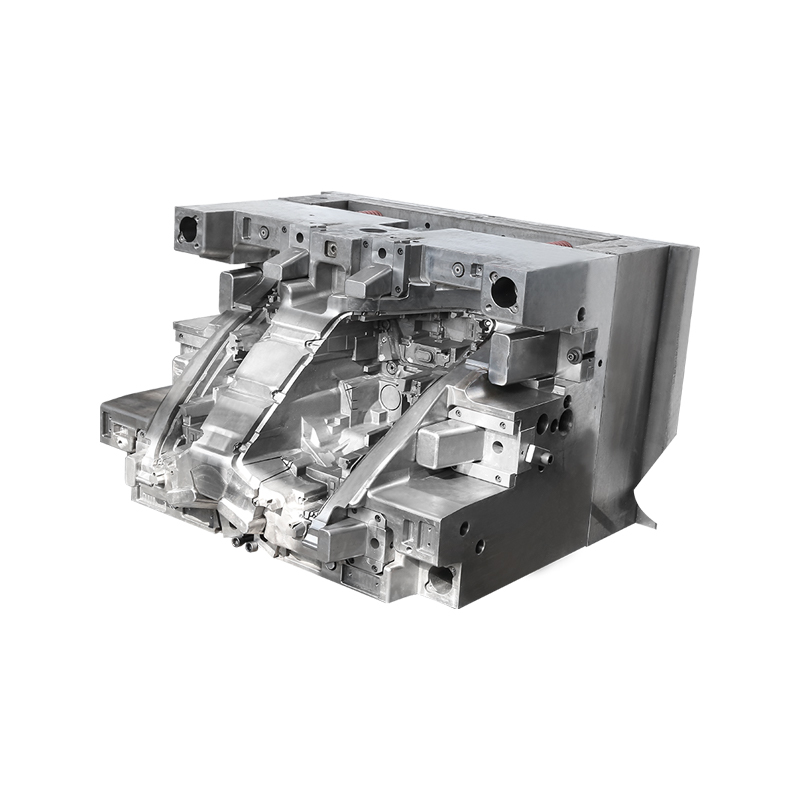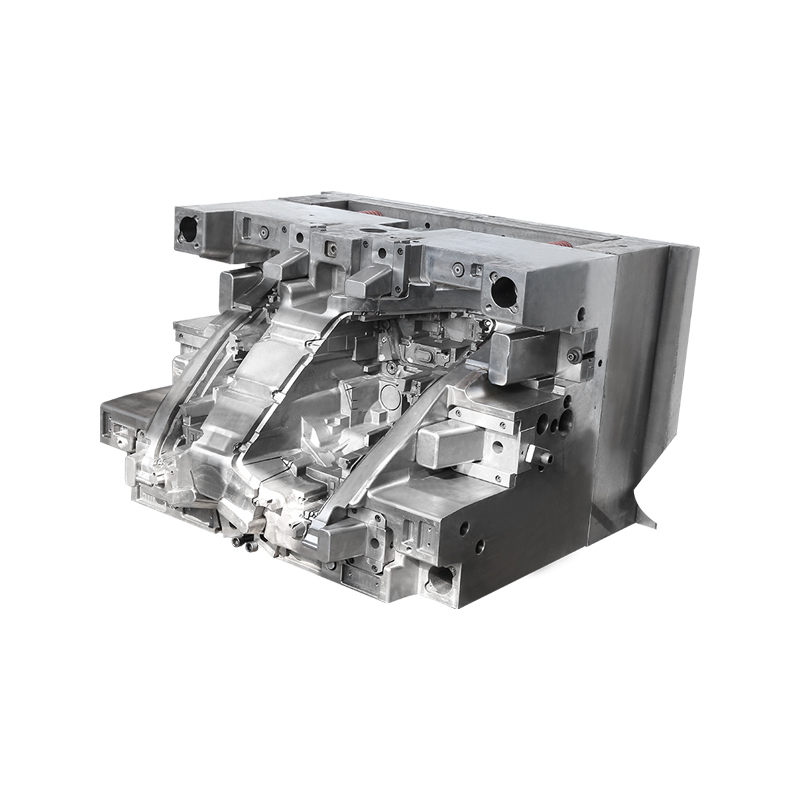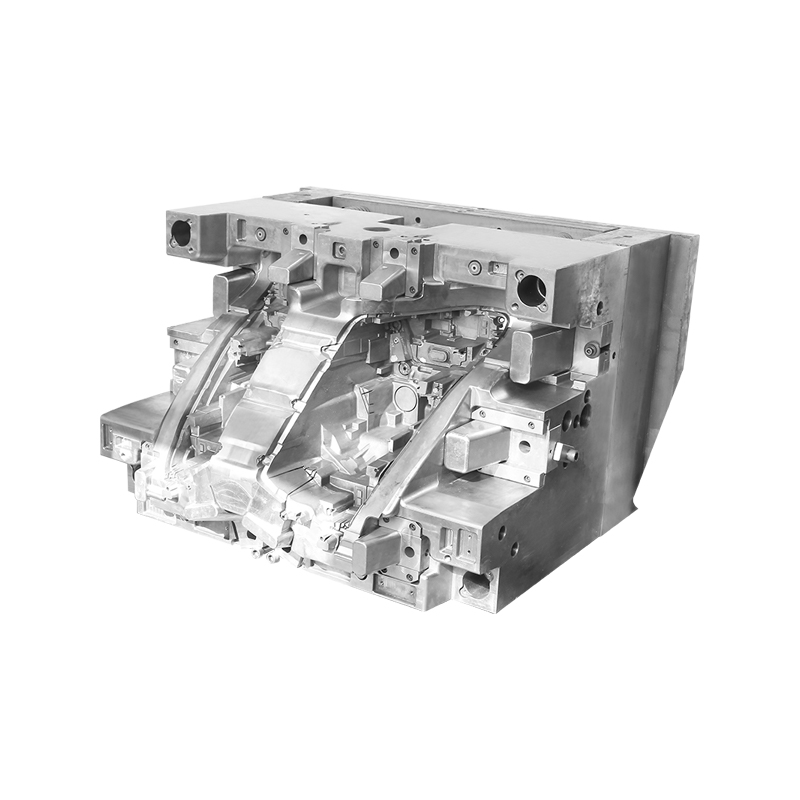During this phase, a chemical reaction takes place within the resin of the BMC material. Gradually, the resin transforms into a hard solid with properties that render it both insoluble and infusible. The BMC material, in its heated state, adopts a low-molecular viscous flow, showcasing fluidity. Simultaneously, a functional group cross-linking reaction occurs, adding to an increase in molecular weight and the emergence of a partial network structure. In this state, the material exhibits a delicate balance—possessing limited fluidity while demonstrating a notable elasticity, commonly referred to as the gel state.
Continued heating during this process propels the crosslinking reaction forward, resulting in an augmented crosslinking density. The resin evolves into a hard bulk structure, culminating in a product of strength and resilience. This meticulous progression from heated fluidity to a robust, solid structure defines the foundation of the BMC Auto Lighting Reflector Injection Mold.
Advantages of BMC Auto Lighting Reflector Injection Mold
Precision Engineering:
The BMC Auto Lighting Reflector Injection Mold is engineered with precision at its core. The intricate molding process ensures that each reflector is manufactured with exacting specifications, meeting the stringent quality standards demanded by the automotive industry. The precision extends to every detail, from the initial softening of the BMC material to the final creation of a resilient, high-quality reflector.
Cost-Effective Manufacturing:
The efficiency of the BMC Auto Lighting Reflector Injection Mold extends beyond the quality of the product; it also contributes to cost-effectiveness in manufacturing. The precise molding process reduces material wastage, and the durability of the resulting reflectors translates to lower maintenance and replacement costs over the product lifecycle.
Versatility in Design:
The adaptability of the BMC material allows for versatile design possibilities. The injection mold can be tailored to accommodate various design specifications, ensuring that the reflectors seamlessly integrate into different automotive models. This versatility is a key advantage in a rapidly evolving industry that demands diversity in design.
Temperature Stability:
The molecular changes induced by the crosslinking process not only enhance the strength of the reflector but also impart temperature stability. The BMC Auto Lighting Reflector Injection Mold ensures that the reflectors remain stable and effective under a wide range of temperature conditions, making them suitable for diverse automotive environments.
Chemical Resistance:
As a result of the crosslinking reactions occurring within the BMC material, the reflectors produced by this injection mold exhibit chemical resistance. This resistance is crucial in automotive applications where exposure to various chemicals, such as those found in cleaning agents or fuel, is inevitable.
In the realm of automotive manufacturing, the BMC Auto Lighting Reflector Injection Mold stands as a testament to the harmonious convergence of advanced technology and durable materials. Through the meticulous process of BMC material pressing, this injection mold produces reflectors that embody precision, durability, and efficiency.


